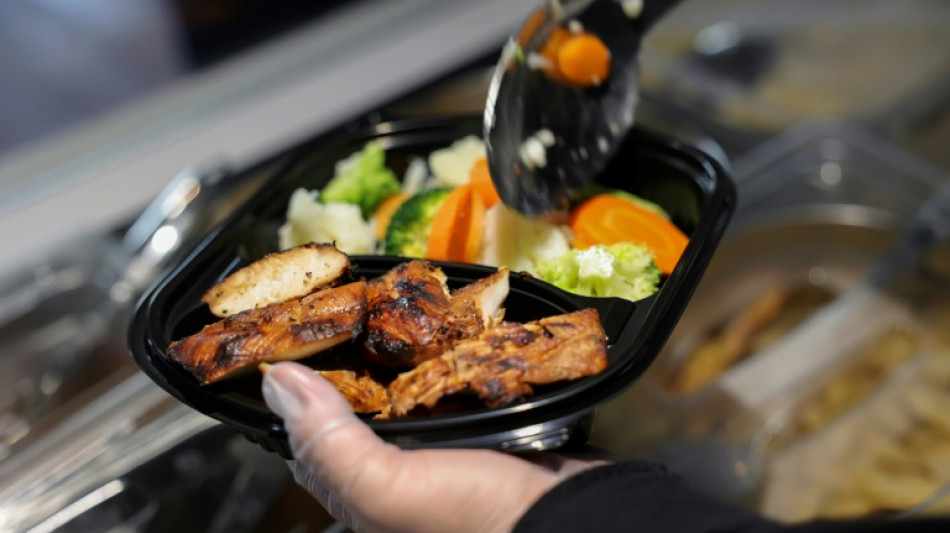
RBGPF
-0.9400


Long partial to heavy lunchtime platters of meat and rice, Asim al-Shammari has recently turned to lighter fare from a self-described diet restaurant, swayed by Saudi Arabia's anti-obesity push.
Roughly one in five Saudi adults is obese, according to an in-depth study published by the World Bank last year that described the problem as "alarming".
The Global Obesity Observatory places the kingdom at number 17 in its international rankings of obesity prevalence, three slots below the United States and near neighbours Qatar and Kuwait.
But the Vision 2030 reform agenda spearheaded by Crown Prince Mohammed bin Salman includes goals for bringing down both obesity and diabetes by decade's end.
The effort is being helped by a raft of new restaurants offering healthier alternatives to some traditional Saudi fare, including the spot where Shammari, a financial analyst, tucked into a plate of chicken, rice and carrots one recent afternoon.
"I used to eat burgers, shawarma or kabsa while I was at work," said the 28-year-old, referring to a rice dish usually served on large shared plates.
"This increased obesity, especially with eight-hour office work and lack of movement."
- Lifestyle change -
For decades, Saudis spent much of their free time in restaurants and shopping malls, and food was a chief source of entertainment in the closed-off kingdom, where high temperatures limit outdoor activities for much of the year.
In 2019, the health ministry started requiring restaurants to include calorie information on menus to encourage healthy eating.
Fast food options -- from international favourites like McDonald's to local chains like AlBaik -- remain ubiquitous in the kingdom's main cities, but they are starting to face more varied competition.
Saad al-Hader, a 25-year-old doctor, said he used to bring meals from home in order to eat something besides junk food, but the proliferation of new health-conscious eateries has made his life easier.
"The popularity of these restaurants, and the fact that they are close to workplaces, makes it easier to stick to healthy eating," he told AFP as he dined on salmon and grilled potatoes.
A growing number of restaurants are offering meal plans that send salads and other healthy meals to clients' homes and workplaces.
One such plan provides a meal a day for a month for 450 Saudi riyals ($120).
Basil Chehayeb, a Lebanese national who runs a restaurant called Reshape in the Saudi capital Riyadh, said he had opened two new branches in the past 18 months to keep up with demand.
The restaurant provides meals each day to about 500 subscribers, most of whom are Saudis.
"Saudis have changed their lifestyle and are now attending sports clubs and eating healthy foods," he said.
- Targeting the youth -
Efforts by restaurants and other private sector businesses to promote healthy eating have been supplemented by other health-minded interventions.
The Saudi Sports for All Federation now organises regular events like the Riyadh Marathon, which this year drew thousands of runners to the streets of Riyadh.
Officials have also begun work on a 135-kilometre (85-mile) Sports Boulevard in the capital featuring foot, cycle and horse-riding paths.
Beginning with the current academic year, the Saudi health ministry has banned the sale of soft drinks in schools.
The message seems to be getting through, at least among young people, said public health consultant Lamia al-Brahim.
"Obesity is a serious health problem" but "it is very noticeable now that health awareness is increasing among the young generation," she said.
"Societal behaviour changes need a long time, and these efforts start from within the home, then the school and then the government agencies."
J.Ayala--TFWP